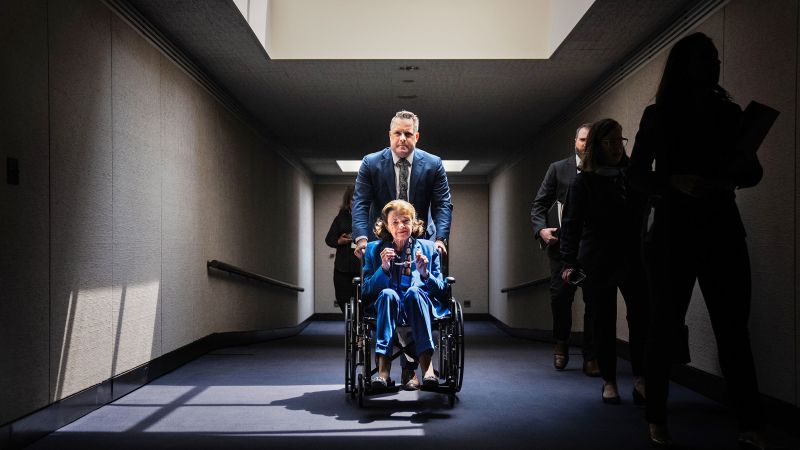A version of this story appeared in CNN’s What Matters newsletter. To get it in your inbox, sign up for free here.
Most people don’t want to work into their 80s and 90s, but the powerful in Washington refuse to let go.
As Americans approach the second straight presidential election in which they are on course to be offered two candidates who both would be the oldest president ever elected, everyone should take note of the as-yet unknown repercussions caused by the passing of Sen. Dianne Feinstein.
The death of the 90-year-old California Democrat – who for months ignored serious calls for her to resign – erases Democrats’ one-seat Senate majority at a time when lawmakers already cannot find a way to pass a spending bill and a government shutdown looks to be days away.
California Gov. Gavin Newsom will need to quickly appoint a temporary replacement. He has said he will appoint a Black woman as a placeholder before a crowded field of potential replacements squares off in a primary in March.
Feinstein had been a shadow of her trailblazing self for years on Capitol Hill when she died this week. She had already slowed down the last time she ran for reelection in 2018. But with the power of incumbency and name recognition, voters didn’t seem to mind.
The top Republican in the Senate, Minority Leader Mitch McConnell, has also showed troubling signs of age, freezing at times during press conferences. But the bouts do not seem to have jeopardized his power among Senate Republicans.
The argument for age and experience
Rep. Nancy Pelosi gave up her position as the top Democrat in the House, but that may have had more to do with her party losing its majority in 2022. Pelosi, 83, is running for reelection to her San Francisco seat in 2024.
She views it as a duty.
“I think it’s important…
Read the full article here

Leave a Reply